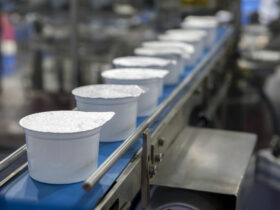When it comes to product development, creating prototypes is an important step that bridges the conceptualization and final manufacturing phases. Among the myriad techniques available for prototyping, Computer Numerical Control (CNC) machining stands out as a pivotal player. This article explores the importance of CNC machining in prototype production, highlighting its key advantages and the impact it has on the innovation process.
Precision and Accuracy: CNC machining is paramount in prototype production because of its unparalleled precision and accuracy. CNC machines, driven by computer-aided designs (CAD), can execute intricate and complex geometries with meticulous detail. This level of precision is crucial for creating prototypes that faithfully represent the intended design, allowing engineers and designers to evaluate and refine their concepts effectively.
Rapid Prototyping: CNC machining excels in providing rapid prototyping solutions. Where traditional methods were time-consuming and required manual adjustments, CNC machines can swiftly transition from one design iteration to another within a click. This agility in production allows for faster feedback loops, accelerating the overall development cycle and enabling quick adjustments based on testing and evaluation.
Material Versatility: CNC machining is not limited to specific materials. Whether working with metals, plastics, or composite materials, CNC machines can handle the diversity of materials used in various industries. This versatility ensures that prototypes are not only visually accurate but also functionally representative of the final product’s intended properties.
Complexity without Compromise: Innovative designs often incorporate intricate and complex shapes that may be challenging to produce using traditional methods. CNC machining, however, excels in manufacturing highly detailed and complex prototypes with minimal compromise. This capability is particularly valuable in industries such as aerospace and automotive, where cutting-edge designs demand precision and intricacy.
Cost-Effectiveness: While CNC machining is recognized for its precision and versatility, it also offers cost-effective solutions for prototype production. The ability to automate processes reduces labor costs and minimizes material waste, making CNC machining an economical choice for both small-scale and large-scale prototype production.
So, when it comes to prototype production, look no further than CNC machining that offers unparalleled precision, rapid prototyping capabilities, material versatility, and cost-effectiveness.
As technology continues to advance, the role of CNC machining in shaping innovative products is likely to expand, further solidifying its status as an indispensable tool in the intricate process of bringing ideas to life. In this regard, Locus Precision can help you meet all your prototype requirements with precision.







